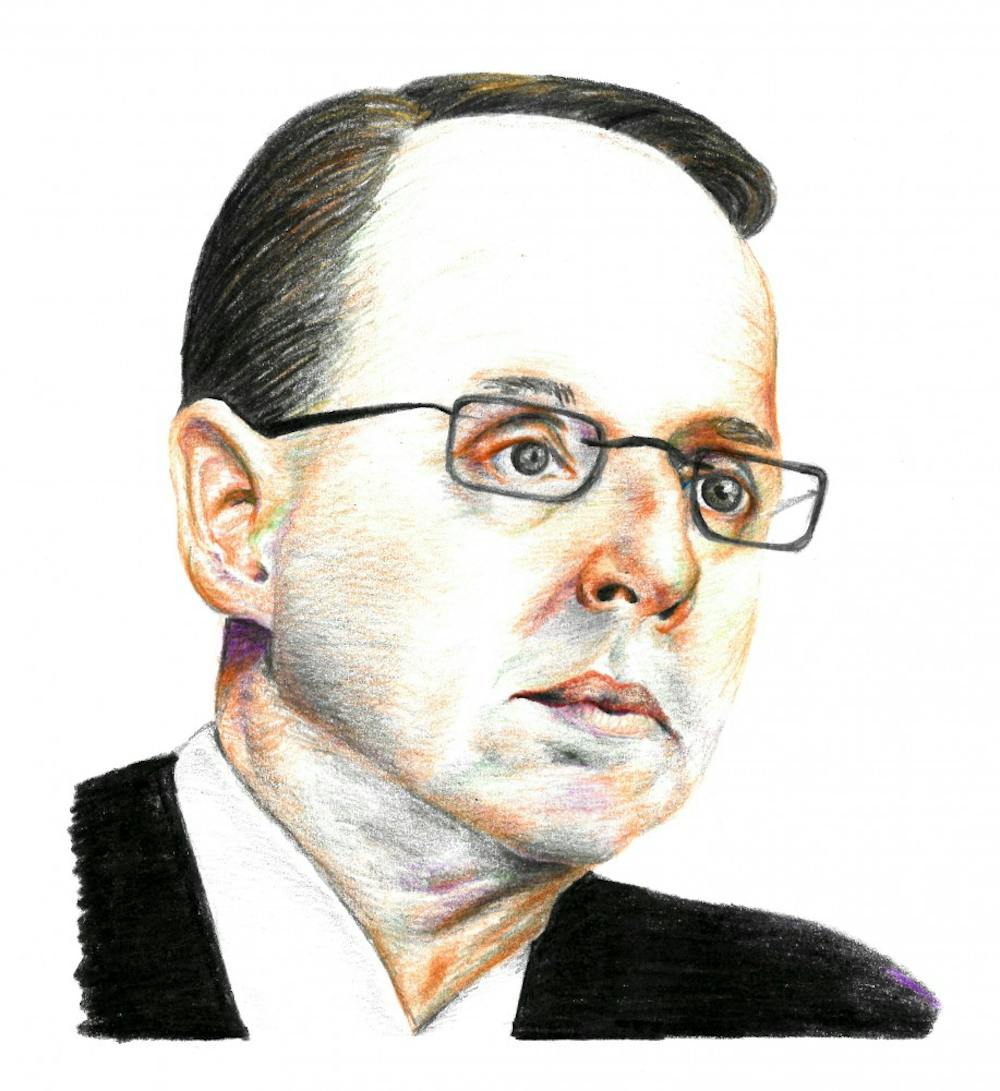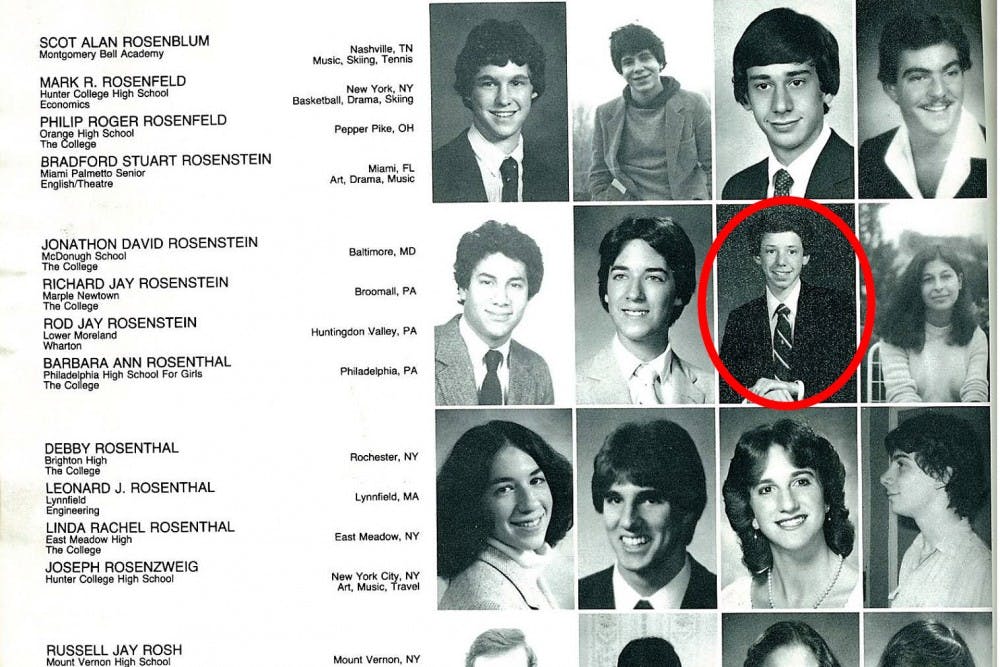
Following President Donald Trump's stunning victory last fall, various Penn alumni have been elevated to prominent roles in the federal government — including Deputy Attorney General and 1986 Wharton graduate Rod Rosenstein.
Rosenstein's name has been cited on the front pages of newspapers nationwide for his pivotal role in the Justice Department’s investigation of possible ties between the Trump campaign and the Russian government.
In May, the Philadelphia native wrote a highly publicized statement recommending the firing of former FBI Director James Comey. A week later, he appointed Robert Mueller as special counsel, authorizing the former FBI Director to probe “any links and/or coordination between the Russian government and the campaign of President Donald Trump, and any matters that arose or may arise from the investigation.”
Rosenstein has continued to expand the investigation even as Trump continues to dismiss the probe as a "a total fabrication" and "a witch hunt." As he explained to The Daily Pennsylvanian in a one-on-one interview in Washington on Sept. 5, Rosenstein is tasked with “overseeing the operation [of the investigation] — that includes budgeting and certain issues that may require approval from the department.”
Yet while Rosenstein is now becoming a familiar name across the United States, his reputation at Penn has largely remained unknown.
According to interviews with several of Rosenstein’s classmates, the deputy attorney general has maintained a professional image even while he was a Penn undergraduate. His demeanor at school was largely in line with his current public image, classmates said — intelligent, understated, driven and deeply interested in the study of law.
“I remember that I heard he got into Harvard [Law School] and was going there,” 1986 College graduate Elissa Cadish said of an interaction she had with Rosenstein during their senior year. “I was impressed but not surprised.”
Rosenstein was unquestionably active on campus — in addition to taking classes as a Benjamin Franklin Scholar, he participated and often took on a leadership role in a wide array of extracurricular campus activities. He served as editor-in-chief of Penn Course Review, vice president of the John Marshall Pre-Law Honor Society and he co-founded a now-defunct publication called the Penn World Review.
“We had to go around and sell ads — that was definitely an interesting experience, a sort of start-up experience," Rosenstein said of the Penn World Review.
But Rosenstein’s deepest friendships seemed to emerge from Ware College House, where he resided for his final three years at Penn.
“About two weeks ago I attended the wedding of the daughter of one of my classmates, Brad Klinck,” Rosenstein said. “I was at a table with, I think, four other classmates, all from Ware College House.”

1986 yearbook screenshot
“[Rosenstein] was well liked, had a quick sense of humor, but also was driven and going places. You don’t graduate with a perfect GPA without both being brilliant and studying,” 1986 Wharton graduate Brad Klinck wrote in an email. “While Rod was the smartest guy in the room almost all the time, he never acted that way.”
Upon graduation, Rosenstein, who graduated summa cum laude, was elected to both Phi Beta Kappa and Beta Gamma Sigma, two of the most selective scholastic honor societies for "outstanding achievement in all their academic work," according to the 1986 Commencement address. Rosenstein was also awarded the Royal Society of Arts silver medal, one of the seven undergraduate leadership awards given that year to students.
While classmates that knew him almost unanimously described Rosenstein as smart, several noted that despite his extensive on-campus involvement, he was quiet and kept a low profile.
Several classmates described seeing news articles about Rosenstein posted in the group’s 30th reunion Facebook page. One classmate, 1986 College graduate David Blewett, recalled spotting his name in the news decades earlier, during Rosenstein’s involvement with independent counsel Kenneth Starr’s Whitewater investigation.
Rosenstein’s time at Penn was the first step in what became a steady rise through the ranks of America’s justice system. After graduating from Harvard Law, where he edited the Harvard Law Review, he worked as a trial attorney prosecuting public corruption, coincidentally, under the supervision of then-Assistant Attorney General Robert Mueller. From there, he worked on the Starr investigation and as an assistant U.S. attorney afterwards, before being promoted in 2005 to U.S. attorney for the District of Maryland, a position he held until April.
Now, Rosenstein may become one of the most important figures in what might be the highest-profile criminal investigation in a generation.
“I remember feeling good when I saw he was appointed [as Deputy Attorney General],” said Cadish, who serves as a district judge in Las Vegas, Nev. “He’ll take it seriously, follow the law and act appropriately.”
The Daily Pennsylvanian is an independent, student-run newspaper. Please consider making a donation to support the coverage that shapes the University. Your generosity ensures a future of strong journalism at Penn.
Donate



